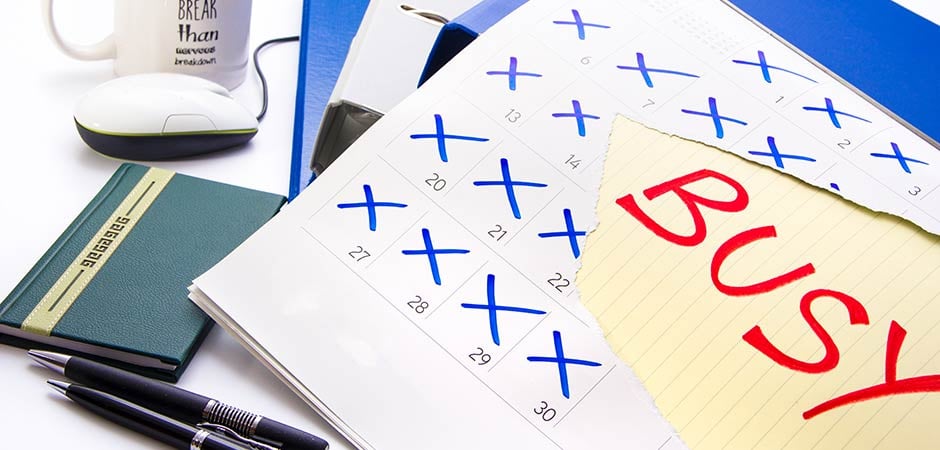- What causes a prospective client to choose to buy from one salesperson instead of another? What creates the preference to buy from one and reject another?
- Why does one salesperson easily acquire a second meeting while another leaves without a second meeting on the prospective client's calendar?
- How is it possible for one salesperson to be able to successfully lead the client through the conversations they need to have while another has to follow the client's lead?
Even though sales leaders have been taught to believe sales is a science, and that a repeatable process is all that is necessary for their sales force to succeed, that is a myth. Some salespeople are born with attributes that make it easier for them to succeed, while others struggle to create and win deals—even when following a documented process.
In the last decade, sales leaders were promised that all that was necessary to improve results was the efficiency that only technology could promise. As it turns out, some technologies increased efficiency, but only for a small part of the population of the sales force. There are a number of technologies that are helpful, yet they are not capable of tackling any of the three bullet points above.
The key to better results comes only from greater effectiveness in the sales conversation.

More Isn't Better than Better
A recent post here tackled the subject of sales leaders who believe they need more opportunities, requiring each salesperson to have 300% or 800% of their goal in the pipeline. This approach is summed up with the idea that sales is a numbers game. It’s the equivalent of believing the second lottery ticket you buy doubles your chances of winning the Powerball. The odds of winning the Powerball is 1 in 292,201,338. Buying a second ticket provides another 1-in-292,201,338 chance.
The salesperson who has an average win rate of 12% doesn't increase their chances of creating and winning a new opportunity by scheduling a new meeting with a prospect. The first meeting with the new prospective client doesn't increase their chances any more than the second lottery ticket increases your chances of winning the Powerball. Occasionally, an ineffective salesperson bumps into a prospective client that buys from them because they grew up in the same small town or is reminded of their best friend in middle school.
The variable the sales leader needs to focus on is not the number of opportunities. Improving your results as a sales leader requires changing the critical variable that is the 12% win rate, a number that suggests the salesperson lacks the effectiveness they need to succeed. It's critical to recognize more opportunities being wasted isn't a good strategy to grow net new revenue.
An increase in effectiveness to, say, a 40% win rate is the same as owning 40% of all the Powerball tickets.

How Sales Leaders Avoid Sales Effectiveness
Here is a short list of reasons sales leaders don't work on effectiveness:
- It is easier to have the sales force increase their activity than it is to help them improve their effectiveness.
- Apathetic hiring prioritizes a salesperson’s experience without doing the work to ensure they have the character traits and competencies to succeed in the role for which they are being considered.
- Many sales managers are going to be asked about their pipeline. A larger potential revenue number is an amulet that protects the sales manager from evil or supernatural forces, all types of danger, or being chastised for a lack of coverage.
- The culture doesn't support the development of the sales force due to a lack of training, coaching, or development opportunities that would make them more valuable to their clients, which is the prerequisite to being more valuable to their own company.
- There is a false belief that there isn't enough time to train and develop the sales force, as their time should be making calls and closing deals. This comes from the idea that the company hired a salesperson who should already know how to do their job.
- We trained them on marketing's new slide deck and the new products at the big, expensive sales kickoff meeting. They know how to tell the company's story and how to position the new product.
The Longer It Takes, the Longer It Takes
The longer a sales force goes without improving their effectiveness, the longer it will take for the sales organization to improve their results. Poor results do not become incredible results without things changing—this is especially true for the potency of the sales force. The longer you accept low standards, the more difficult it is to impose the higher standards necessary for a high-performing sales organization.
With the limited time, energy, and resources, effectiveness should be your highest priority. Leading the sales force should focus on increasing their effectiveness and improving their results over time. The stress of meeting your targets is greatly reduced when your team is effective enough to be able to reach their goals and targets.
The reason less than 50% of salespeople reach their goals is not that they aren't good people or that they are not trying, with few exceptions. Instead, it's because they lack strong leadership and the sales culture that would cause them to grow and develop into a better version of themselves.
This is not your father or mother's sales environment. B2B sales requires much more of the salesperson. The unwillingness to provide your prospective client with a salesperson that creates value for them in sales conversation will lead them to take a meeting with another company's salesperson, one who is better prepared to help them improve their results.
The answer to the three questions that began this post can only be addressed with greater sales effectiveness.








.jpg?width=768&height=994&name=how-to-lead-ebook-v3-1-cover%20(3).jpg)


